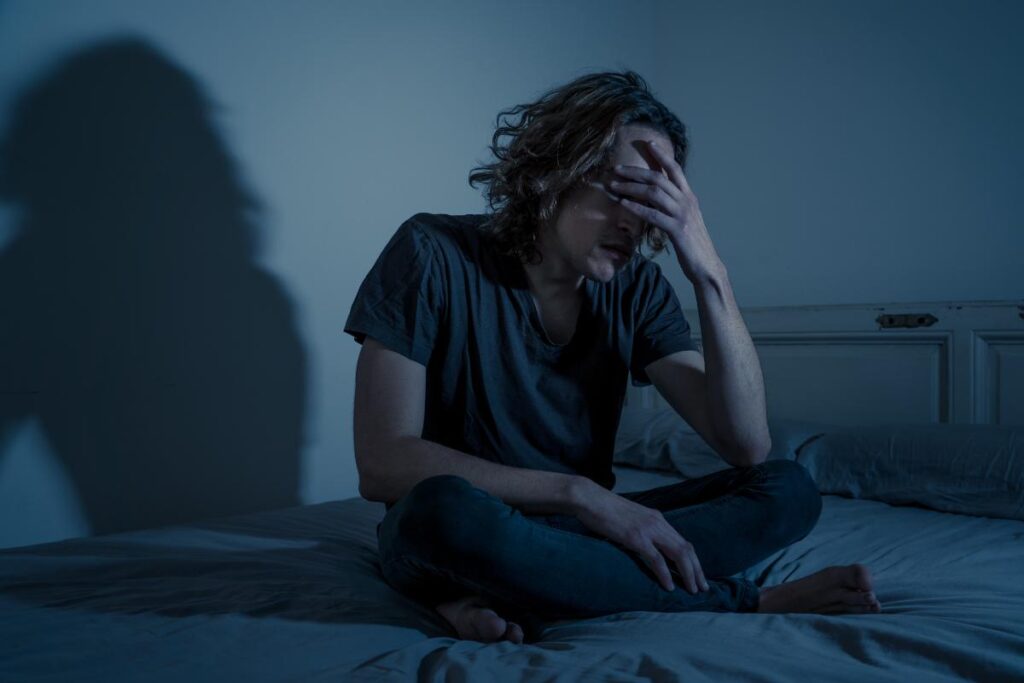What is psychological dependence? Psychological dependence means an individual is mentally attached to a substance versus physically. However, it requires treatment but does not result in your body developing a physical dependency on your substance of choice.
At Zelus Recovery, addiction treatment often involves co-occurring disorder treatment. This type of holistic approach to addiction helps to address and heal the underlying causes of addiction. If you or someone you care about may benefit from comprehensive care for addiction or psychological dependence, contact our Zelus Recovery team today by calling 208.518.0797 or completing our online form.
What Is Psychological Dependence?
Substances that can create psychological dependence include marijuana, cocaine, and heroin. Some psychoactive substances don’t cause physical dependency, but regular use can cause psychological dependency to occur.
To fully understand psychological dependence, it is important to remember that psychological dependence can cause emotional withdrawal symptoms.
Psychological Dependence and Substance Use Disorders
While physical addictions cause somatic withdrawal symptoms such as aches, pains, and nausea, psychological dependence causes emotional withdrawal symptoms, such as:
- Anxiety
- Restlessness
- Insomnia
- Depression
- Agitation
- Cravings
If you are wondering what psychological dependence is, it is important to remember that any substance, even physically addictive ones, can cause psychological dependence. For example, opiates like OxyContin can result in both a physical and psychological addiction.
All psychoactive substances, such as alcohol, marijuana, and opiates, have the potential to cause both physical and psychological addiction. Both physical and psychological dependencies can cause withdrawal symptoms and require the help of an addiction treatment center to overcome them.
What Is Psychological Dependence on Drugs?
During addiction, your brain’s pleasure and reward center changes and begins rewarding your drug and alcohol use or other harmful behavior with a rush of pleasurable neurotransmitters.
This process can make it difficult to recover because it causes you to experience intense and overwhelming cravings when you try to stop using the drugs or stop the behavior. These cravings intensify whenever you are exposed to triggers, which are people, places, or things that remind you of the stimuli you are psychologically dependent on.
Treatment can occur at an inpatient or outpatient Boise addiction treatment center. Psychological dependency treatment programs utilize both evidence-based and holistic therapies, such as:
- Cognitive-behavioral therapy
- Dialectical behavior therapy
- Art and music therapy
- Relapse prevention education
- Coping skills education
- Individual, group, and family therapy
An essential part of successful substance abuse treatment is learning how to cope with triggers and cravings in a healthy manner. Nearly half of all people in recovery experience at least one relapse. A relapse occurs when you resume using drugs or alcohol or engaging in harmful behaviors following a sustained period of abstinence. Treatment centers ensure that you have the skills and tools necessary to navigate recovery.
Benefits of Addiction Treatment for Psychological Dependence
At Zelus Recovery, our team believes that our addiction treatment programs can help you overcome psychological dependence on drugs. Once you enter into our treatment programs, you’ll begin to experience the benefits of addiction treatment almost immediately. You’ll have an opportunity to step away from your daily life and have the time to focus on your recovery. Other benefits of addiction treatment at Zelus Recovery include:
- Enhanced physical and mental health
- Peer support from others in treatment
- A safe environment to share openly and honestly
- Improved self-confidence
- A team of experts in your corner
- Healthy coping strategies
Ease Your Psychological Dependence at Zelus Recovery
Our Zelus Recovery Boise addiction treatment programs offer you the ability to have the support, guidance, and compassion you or your loved one needs to overcome physical or psychological addiction. While addiction can leave you feeling overwhelmed and stressed, finding help starts when you reach out to Zelus Recovery.
If you are wondering what psychological dependence is, chances are you or your loved one is struggling with a substance abuse problem or behavioral addiction. Early treatment is the best way to improve recovery outcomes as addiction progressively worsens until you receive treatment. It is never too late, or too early, to ask for help. To find out more about our nationally-recognized teen and young adult substance abuse treatment programs, call us today at 208.518.0797, or contact us online.





